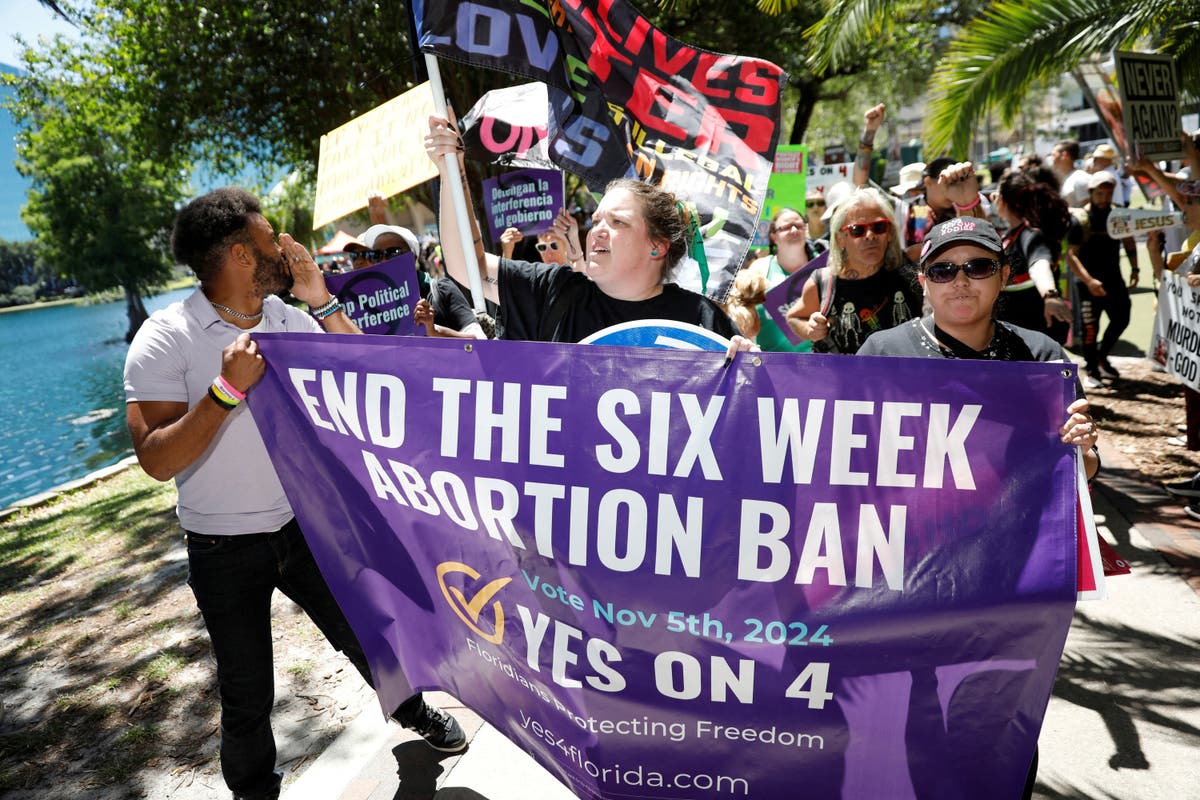Travel
How far will Florida women be forced to travel for an abortion now?

A ban on abortion after six weeks of pregnancy went into effect in Florida on Wednesday. Because of a 2023 law passed by Florida’s Republican state legislature and signed into law by Governor Ron DeSantis this week, most women will now be ineligible for the procedure before they even know they are pregnant.
A 2021 study from the University of California in San Francisco found that as many as a third of all women in the US discover their pregnancies at or after six weeks into the gestational process. The Florida ban has extremely limited exceptions: abortion is only allowed to save the life of the mother, or in cases where the pregnancy would cause “substantial and irreversible” bodily harm.
Thanks to realities of US politics across the deep south, Floridians seeking abortion procedures have another factor stacked against them: geography. Conservative governments in neighboring Alabama and Georgia, as well as further on into South Carolina and Mississippi, have all either passed anti-abortion laws recently or seen so-called “trigger bans” go into effect with the Supreme Court’s decision overturning Roe v Wade in 2022.
The closest state to Florida with looser restrictions on abortion is North Carolina, 640 miles away. Driving from Miami, Florida to Charlotte, North Carolina takes just under 11 hours each way. Two-hour direct flights are possible between some cities in the two states, although flights are sometimes contraindicated after a medical procedure.
A purple state, unlike its neighbor to the south, North Carolina also has an abortion ban in place — but after 12 weeks into the pregnancy.
The nearest state to Florida that doesn’t have what Planned Parenthood calls “severe restrictions” and instead has “mostly accessible” reproductive healthcare is Virginia. In Virginia, abortion by choice is legal up to 26 weeks and 6 days, and remains legal past that limit if it is needed to save the pregnant person’s life or to save their health.
Virginia is 861 miles away from Florida. A car journey from Miami to the state’s capital of Richmond takes over 13 and a half hours.
Accessing abortion is often complicated in such areas even when women believe they are accessing reproductive services. A South Carolina woman who found herself on the wrong side of her home state’s ban described to The Independent in February how she was misled by an anti-abortion “crisis pregnancy centre” in North Carolina which lured her across state lines on false pretenses of scheduling an abortion procedure and conducting an ultrasound. In fact, the center was being run by anti-abortion activists.
“This [clinic] … coerced me into scheduling an appointment, going and driving up to Charlotte,” Taylor Shelton told The Independent. “They said that you can’t do ultrasounds with an IUD in place, which is not true.”
The result of this regional block of abortion bans across the American south is that many women in the country will find the procedure out of reach.
Florida’s Democratic Party, along with the Biden campaign, is plotting a full-court press against Florida’s new ban this election cycle as it eyes a Senate seat held by Rick Scott and numerous statewide races — not to mention the state’s 30 votes in the Electoral College. Donald Trump remains heavily favoured to win the state in November, given its deepening-red shift in recent years. Nevertheless, Biden’s team has declared the Sunshine State in play.
The incumbent president visited the state and campaigned alongside local Democrats in April; on Wednesday, as the ban took effect, Vice President Kamala Harris was set to make a visit too. Harris made history earlier in 2024 as the first sitting vice president to visit an abortion clinic when she did so during a March visit to Wisconsin.
Speaking from a Planned Parenthood facility in St Paul, the vice president condemned Republican politicians for inserting themselves into the healthcare decision-making process.
“How dare these elected leaders believe they are in a better position to tell women what [doctors] need to tell them, and what is in their best interest?” she asked.
“I’m here at this healthcare clinic to uplift the work that is happening in Minnesota as an example of what true leadership looks like, which is to understand it is only right and fair that people have access to the healthcare they need, and that they have access to healthcare in an environment where they are treated with dignity and respect,” Harris continued.








/static.texastribune.org/media/files/f5fdb1dff4d6fd788cba66ebaefe08d0/Paxton_GOP_Convention_2018_BD_TT.jpg)
